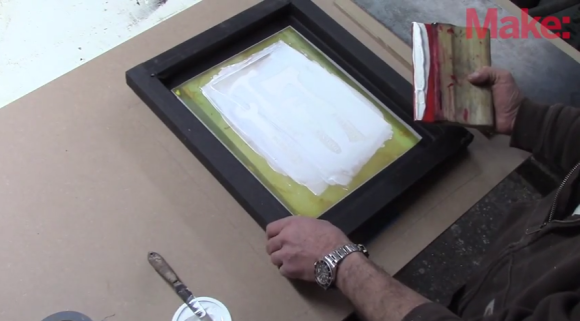 Silkscreening isn’t as hard as it might seem. For instance, it’s easier than block printing because you don’t have to reverse the image. [Jimmy DiResta] shows how easy it is to put a silkscreening setup together and print on wood, metal, and, of course, t-shirts.
Silkscreening isn’t as hard as it might seem. For instance, it’s easier than block printing because you don’t have to reverse the image. [Jimmy DiResta] shows how easy it is to put a silkscreening setup together and print on wood, metal, and, of course, t-shirts.
Once you decide on a design, print it out on an acetate sheet which can be run through a regular household printer. You can buy ready-made meshed frames or even entire kits, but [Jimmy] shows you how to build a simple frame and staple screen mesh to it. After sealing up the edges, mix up some photo emulsion, cover the mesh, and let it dry in a dark room.
When it’s dry, place your acetate on the screen and expose the emulsion using whatever light is available. [Jimmy] built a milk crate tower up to his fluorescent work light and exposed it for about four minutes. Now you’re almost ready to make your mark. Peel off the acetate and remove excess emulsion with a squirt bottle and compressed air. Dry the whole thing with a hair dryer and you’re done. Load up a squeegee with silkscreen ink and draw it from top to bottom with nice, even pressure, and you’ve got yourself a silkscreened thing.










